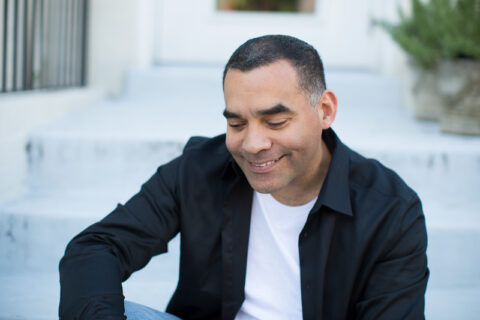What’s different about this conversation if there’s an adult at the center?
A great deal changed for me after having a kid, but one of the biggest changes was the idea of an audience for my nonfiction. I’m not sure why, but I usually imagine my son reading these essays after I’m gone. Perhaps because nonfiction is more honest than fiction (at least, mine is), and less interpretative. Or maybe because my nonfiction has often been transparently instructive. In any event, I don’t really think of him when I write fiction, but I do think of him with nonfiction.
And so, I think the difference has to do with the intended audience. I’m not looking for an argument. I don’t want to debate the necessity of war or villainize a certain army. And I don’t think that’s possible when discussing war with an adult.
Should I feel obligated to view images of war?
Once a woman who had undergone a horrific gang rape told me that, when later trying to recount the experience to a poet she was dating, that poet told her he couldn’t listen to her story. He understood that she needed someone to talk to, but it couldn’t be him.
Once I wrote a novel steeped in the world of sex trafficking, and I included as much honest information as I could. But I didn’t include everything. At an event discussing that book, someone asked me what I hadn’t included, what I held back. And I said that while the characters in my book were adults and every experience they’d undergone was based off research, in truth these experiences had all happened to children.
We’re not required, as storytellers, to undergo trauma or damage ourselves. But I do worry that, by not nakedly showing evil, we help the perpetrators conceal their violence. I’m not a proponent of viewing execution videos or photos depicting the aftermath of a school shooting. But I wonder if, by not doing so, we have allowed denial.
What are your go-to influences for writing in this voice/form?
Lorrie Moore did this so well in her often-taught collection, Self-Help. I remember reading and teaching her story, “How to be a Writer” in writing classes, and it’s hard for me to come up with someone who’s done it better.
That’s a distressingly short, uninteresting answer. I’m sorry. But it’s the truth.
What changes if children are taught to be soldiers?
I don’t know if this particular essay would have changed much. I think I’m probably a pacifist. I understand the necessity of war, but I also consider that necessity a moment of finality, which runs counter to how—historically—most countries, and men, view violence.
Despite my pacifistic leanings, I can’t demonize war, or the concept of a “soldier” in this essay, which is to say someone who enacts violence. But what I can attack is where that violence is used.
We need to have, as humans, rules, and one of those rules must be the steadfast safety of children. If, at any point, you allow for the killing of children, your humanity has been lost. That must be the point we agree on. It’s all we have left. And if you read that sentence and are already thinking of exceptions when children should be killed, you’re poisoned.
Arguably, if someone kills your children, then you have right to kill that person. But you don’t have the right to also kill their children, and their neighbors, and their town. Such a concept is morally insane. Yet that is what the nuclear bomb, and bombs in general, mean (and its often how wars are fought). The bomb, and the concept of mutual mass destruction, has made all of us hostages, wondering when our captors will grow weary of keeping us alive.
I’ve been thinking a lot of Faulkner’s Nobel Prize speech, and his obsession with the bomb. And I’ve come to believe that the nuclear bomb, which is the greatest threat to humanity and the most likely end of our run on this planet, is a weapon of utter terrorism and evil. Owning a weapon of that magnitude states that, if we feel it necessary, we will wantonly kill all of the children within a town, city, or country. Such an allowance of evil destroys us. We have to be better than that.
If we allow for soldiers, then we must allow for weapons stronger than their violence. Laws and morality aren’t enough. Our weapon must be something that negates the use of annihilation.
I don’t know what that is. But I know, desperately, it must be found.
What’s the point of the garden if it will always become a cemetery?
In the best cases, I think, writing is an act of hope. We hope our words accurately depict what we want to say, we hope they’re published, we wish to resonate. Even if we’re not forcing a lesson, there’s, at least, some sort of insight we’d like to share.
When writing about tragedy, we’re often writing about how we emerge. And when we emerge from a tragedy, I think we have a duty to guide others away, to ensure that the atrocities we’ve witnessed aren’t repeated.
The reason I allow for soldiers is because we’ve had great philosophical and moral leaders throughout our short time on this planet, and not one has convinced the soldier to exchange his gun for a plow. And so the “soldier” in my essay will continue, because this is what history has shown us to be — a violent, easily corruptible animal. But he’s also more than that. Not every garden is destined to become a cemetery, and we wouldn’t have survived this long if that was the case. We can’t survive on fruit soaked in blood. And so we’ve found an uneasy balance between the soldier and the gardener, a balance that historically, uneasily, teeters.
This essay is my reminder to anyone who reads it that the option to grow gardens exists.
And there’s an urgency in allowing those gardens to flourish.



 The core workshop of SmokeLong Fitness is all in writing, so you can take part from anywhere at anytime. We are excited about creating a supportive, consistent and structured environment for flash writers to work on their craft in a community. We are thrilled and proud to say that our workshop participants have won, placed, or been listed in every major flash competition. Community works.
The core workshop of SmokeLong Fitness is all in writing, so you can take part from anywhere at anytime. We are excited about creating a supportive, consistent and structured environment for flash writers to work on their craft in a community. We are thrilled and proud to say that our workshop participants have won, placed, or been listed in every major flash competition. Community works.